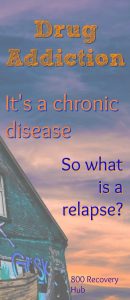Finding the best Treatment can be confusing
Finding the right treatment option is important to a successful recovery. There are many different types of recovery programs. Not one size fits all. The idea is to find one that can help you achieve all of your sobriety goals.
Hang out on our site and look at the many treatment programs that are available today by clicking the links on the tabs. Keep in mind that your insurance may not pick the treatment choice that is best for you. They might want you to go to the one that fits their goals. That is where we can provide heaps of value. We will fight to get you into the best option for your needs.
Drug Treatment
Treatment helps people stop using the drugs they’re addicted to. Treatment can include talk therapy, medicine, or both. It helps them learn to fight the urges to use drugs again, and it helps them regain control of their lives.
People start taking drugs for different reasons. Sometimes it’s because they’re upset about personal problems and don’t know how to cope. But drugs can make these problems worse. Treatment can help people work on the problems in their lives, such as family trouble, money trouble, or problems at work.
Addiction Has Many Consequences
Drug use can mess up every part of a person’s life. So treatment needs to work with all areas of your life—your relationships, your work, the way you have fun, and how you deal with problems.
Treatment can help people who are just starting to get addicted.
You don’t have to be at “rock bottom” for treatment to work.
When someone quits taking drugs and starts learning how to live life without drugs, we say they are “in recovery.”
Drug Treatment Facts
Most people who are addicted can’t stop using drugs just because they want to. They won’t feel okay until their bodies and brains stop feeling a need for the drug. Sometimes medicines can make it easier to stop taking the drug without feeling sick.
But getting the drug out of a person’s system is just the first stage of treatment.
People with addictions also need to change how they do things so they can live healthy lives again without drugs.
Often they became so focused on getting and using drugs that:
They did not care for their family, their work, or their community. People with addictions often are in a lot of trouble for breaking rules and not keeping their promises.
They did not look after their health. People with addictions might not be eating or sleeping well, cleaning their teeth, or getting treated for infections. Their drug use might have caused health problems.
Things they used to enjoy no longer make them feel good. Drugs have made them stop caring about hobbies, interests, and friends.
Talking with doctors or counselors (people trained to listen and help you solve personal problems) or other people in treatment can help.
Call 1-800-662-HELP (4357) at any time to find drug treatment centers near you.
Does Drug Treatment Work?
Yes. People who get treatment and stick with it can stop using drugs. They can change their lives so they don’t go back to taking drugs. But they have to try hard and for a long time.
A person can make mistakes, feel bad, and start using drugs again. This is called a relapse. If that happens, the person should get back into treatment as quickly as possible. Relapse happens to a lot of people recovering from drug addiction.
Stopping drug abuse is like trying to diet and lose weight. It’s hard to learn to do things differently, like eat less, exercise more and avoid some favorite foods. It’s easy to slip up, eat too much, and gain back the weight. But then you have to try again.
It’s the same with quitting drugs. People with addictions might get treatment, slip up, and then go back to treatment many times before it works. It’s important to get treatment for as long as you need it.
Types of Drug Treatment
You often hear about famous people with drug problems going into rehab, but it sometimes doesn’t work the first time. Different types of rehab work for different people. It depends on how bad the drug problems are and what drugs the person is addicted to.
Some treatment happens in hospitals or in clinics where the person stays for days, weeks, or months. Another treatment happens during the day at clinics and doctor’s offices, and the person can go home at night. But a person in treatment should not be around other people who are using drugs, even family members in the same home.
Medicines and therapy are used to treat drug addiction. Medicines can help people stop using alcohol, tobacco, heroin, and some prescription pain relievers.
- Some medicines can help them feel less bad when they first quit.
- Other medicines can help people stay off these drugs.
- One medicine makes people throw up and feel sick if they drink alcohol. It helps them choose not to drink since they know it will make them feel sick.
- Other medicines make people want the drug less.
- Some medicines block the high feelings people get when they take the drug. That can also make it easier to quit.
There are no medicines to treat addiction to other drugs.
Talking about your feelings with counselors (people trained to listen and help you solve personal problems), or behavioral counseling, is also an important type of treatment. It is often called “talk therapy.” It can be just between you and a counselor.
Sometimes family members will join the talk therapy session to help solve family problems. Or you might talk with other people in treatment, in a group led by a counselor. People taking medicines benefit the most when they combine medicine with talk therapy.
Talking helps people with addictions:
- understand why they got addicted
- see how drugs changed their behavior
- learn how to deal with problems so that they don’t want to escape by getting high
- learn to avoid places, people, and situations where they might be tempted to use drugs
Therapy is usually intense at first, but sessions become shorter and happen less often the longer the person is drug-free. After treatment ends, people often need ongoing support. There are many options, including drug-specific support groups, computer programs for remote therapy, and recovery housing.
What is a relapse?
Sometimes people quit their drug use for a while but start using again no matter how hard they try not to. This return to drug use is called a relapse. People recovering from addiction often have one or more relapses along the way. For some drugs, a relapse can be very dangerous—even deadly. If a person uses as much as they used to before quitting, they can easily overdose. An overdose occurs when the person uses too much of a drug and has a toxic reaction that results in serious, harmful symptoms or death. Someone can overdose on purpose or accidentally.
Drug addiction is a chronic (long-lasting) disease. That means it stays with the person for a long time, sometimes for life. It doesn’t go away like a cold. A person with an addiction can get treatment and stop using drugs. But if they started using again, they would:
- feel a strong need to keep taking the drug
- want to take more and more of it
- need to get back into treatment as soon as possible
- They could be just as hooked on the drug and out of control as before.
Recovery from addiction means you have to stop using drugs AND learn new ways of thinking, feeling, and dealing with problems. Drug addiction makes it hard to function in daily life. It affects how you act with your family, at work, and in the community. It is hard to change so many things at once and not fall back into old habits.
Recovery from addiction is a lifelong effort.
If you have a drug problem, you should try to get medical treatment. Support groups can help keep you strong while you’re in treatment:
Alcoholics Anonymous (AA)—for people with alcohol addiction
Narcotics Anonymous (NA)—for people with other drug addictions
For support groups for family members and friends of people with drug problems:
Al-Anon and Alateen
1-888-4AL-ANON (1-888-425-2666)
Monday–Friday, 8 a.m.–6 p.m. Eastern Time
